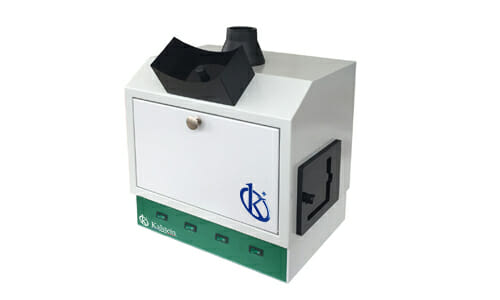In the context of clinical research, electrophoresis stands as an essential technique for the separation and analysis of nucleic acids. This process, fundamental for numerous genomic and molecular applications, requires laboratory equipment that ensures precise and reproducible results. Transiluminators for electrophoresis emerge as critical tools in this scenario, enabling clear and precise visualization of DNA and RNA. The manufacturer Kalstein emerges as a leader in this category, offering high-quality transillumination solutions available for purchase and sale in the global market.
The use of adequate transiluminators not only improves the reliability of clinical results but also optimizes the efficiency and safety of laboratory practices. Below, we will explore the advantages, applications, and selection criteria of transiluminators for electrophoresis, highlighting the value propositions of the manufacturer Kalstein.
Advantages of Transiluminators for Electrophoresis
Transiluminators for electrophoresis provide a clear and detailed visualization of nucleic acids, which is indispensable in clinical analysis. Thanks to advanced lighting technologies, such as ultraviolet (UV) light and blue light, these devices allow observing DNA and RNA bands with high resolution. The manufacturer Kalstein offers models that stand out for their optimal clarity and precision, ensuring reliable results in every use.
The price of these devices can vary depending on their technical features and capacities, but the investment is justified by the quality of the obtained results. In clinical research, where accuracy is paramount, having a high-performance transilluminator is essential. https://kalstein.it/category-product/laboratory-line/transilluminator/
Reduction of Damage to Nucleic Acids
One of the challenges in visualizing nucleic acids is the potential degradation of biological material that is cause by UV light exposure. High-end transiluminators, such as those manufactured by Kalstein, are designed to minimize this risk. Equipped with LED technology that offers lower molecular degradation, these devices allow prolonged analysis without compromising the integrity of DNA and RNA.
This aspect is particularly relevant when working with valuable or scarce samples. The ability to reduce damage while maintaining visual clarity helps maximize the value of each analyzed sample, providing a significant benefit in terms of efficiency and scientific results.
Applications of Transiluminators in Clinical Research
In the field of molecular diagnostics, the precise visualization of nucleic acids using transiluminators is crucial. These devices are used to confirm the presence of specific genetic sequences, detecting mutations and variations that may indicate diseases. The rise of genetic testing has increased the demand for reliable and precise equipment, such as the transiluminators from the manufacturer Kalstein, whose reputation for quality and accuracy is well recognized.
Transiluminators facilitate the interpretation of tests such as PCR, RT-PCR, and gel electrophoresis, where the visual identification of bands is essential for correct diagnosis. By enabling clear visualization, these devices contribute to diagnostic accuracy, which is crucial for the effective treatment of patients. If you want to know the high-end product catalog that KALSTEIN has for you, visit us at https://kalstein.it/
Research in Genetic Therapies
Gene therapies represent one of the most promising fields of research in modern medicine. These techniques aim to correct genetic defects by introducing healthy genetic material into affected cells. In this context, electrophoresis and visualization with transiluminators are critical steps to evaluate the efficiency of genetic transfer methods.
Kalstein transiluminators, with their ability to provide high-resolution images, enable researchers to effectively monitor experimental results. The visual clarity and precision offered by these devices are essential for making adjustments and improvements in developing gene therapies, accelerating the path toward innovative and effective treatments.
For laboratories looking to optimize their nucleic acid analysis practices, Kalstein transiluminators represent an ideal option that combines efficiency, precision, and durability. Investment in these devices translates into tangible benefits in terms of diagnostic accuracy and advancement in genetic and molecular research, consolidating their value in the clinical field.

